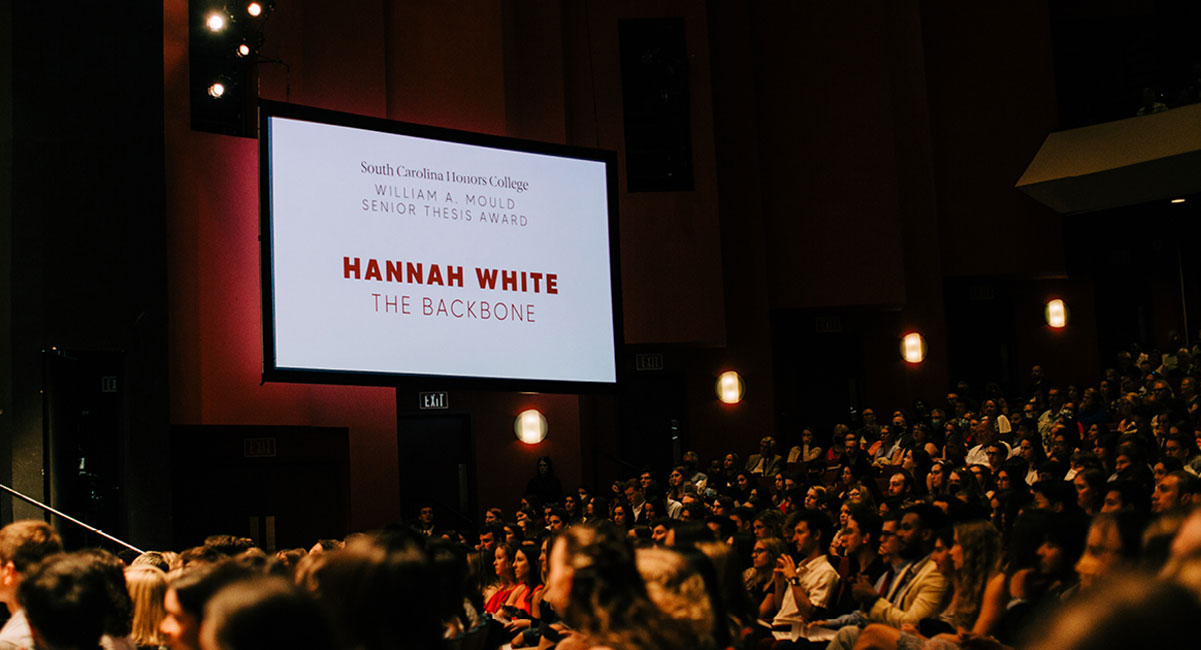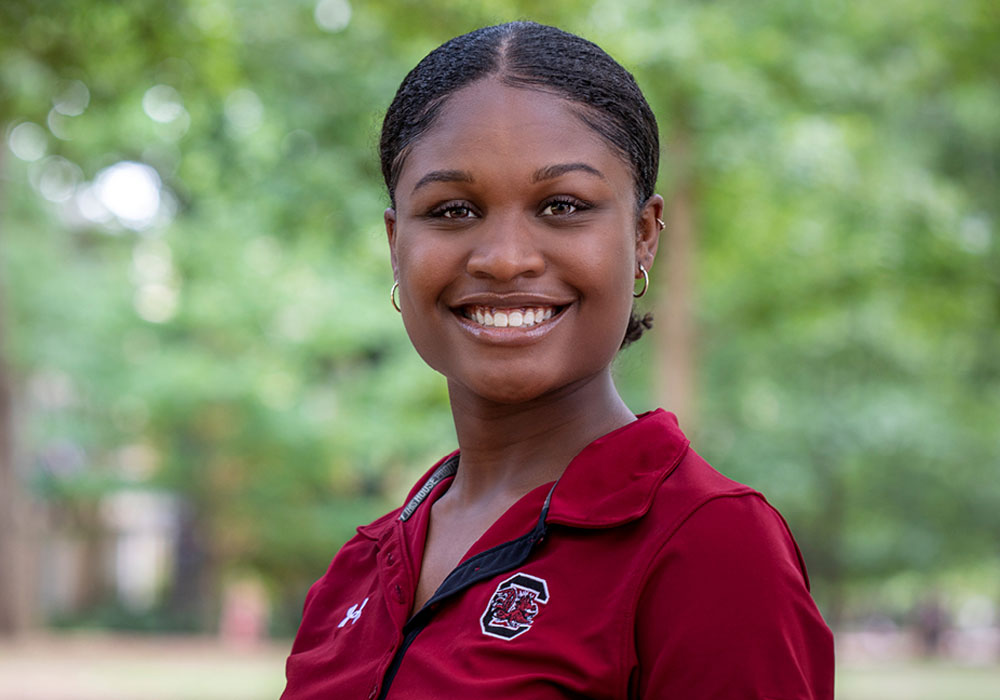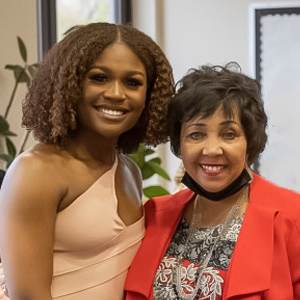Sure, Gail Bush remembers becoming the second Black Homecoming queen at the University of South Carolina in 1975.
She remembers the other candidates, all white, ignoring her when they were brought together to discuss how the on-field ceremony would play out.
She remembers the crown being placed on her head and not receiving the scepter she’d
been promised.
She remembers the sting of the ice that was thrown at her as her escort led her back
to the stands, where the Black students were still on their feet, applauding her.
She remembers the words, hurled by a white spectator, so scalding they still burn, even nearly 50 years later. “You’re not our queen. N ****** can’t be queens.”
And she remembers her escort’s instructions. “Keep walking,” he told her. “They can’t take away your dignity.”
The story, told by Gail Bush Diggs, ’77, is one of many in “The Backbone,” a documentary about Black women leaders at the university. Created by Hannah White, ’22 marketing and management, the 71-minute film includes individual interviews with 21 influential Black alumnae, including Henrie Monteith Treadwell, the first woman — along with two men, Robert Anderson and James Solomon Jr. — to integrate USC in 1963.
White touches on the Black women’s early experiences on campus, including the enslaved women who helped maintain the university in the early 1800s and those who studied at Carolina during Reconstruction. But she focuses on those from 1963 and beyond.
Filled with insightful testimonies, historic and current film footage, photos from The Daily Gamecock, Garnet and Black and other archives, “The Backbone” presents an unvarnished view of the state’s flagship university from the Black women who studied, worked and played here. The project earned White the 2022 William A. Mould Senior Thesis Award, given by the South Carolina Honors College to recognize work most likely to impact a student’s field of study.
“This was a history that was unknown until she sought to know it,” wrote thesis director Toby Jenkins, associate professor in the College of Education, in her nomination letter for the award. “Ms. White has not simply produced an individual piece of scholarship in order to meet a requirement, she has left with the university a useful and important resource and legacy that will continue to serve our campus long after she is gone.”
Sharing untold stories
For White, the university’s second Black woman student body vice president, the impetus for the documentary emerged after she conducted two crowdfunding podcastathons. During the pandemic, White learned from online meetings that many students were struggling financially. Within 48 hours she and classmate Lyric Swinton created a live podcastathon that raised $3,500 for the Student Emergency Relief Fund.
A second podcastathon, created to support the One Creed One Carolina campaign for Black students, brought in $10,000 within 12 hours. For that crowdfunding program, White and four other cohosts interviewed several outstanding Black students, alumni and faculty about their university experiences.
From those interviews, White realized the stories of Carolina’s Black women hadn’t been told. For the sake of history and incoming Black women students, that needed to change.
“I saw a need for Black women to see themselves and see themselves well at the University of South Carolina,” White says. “Dr. Treadwell’s story and others inspired me to say we had to do something from this footage to create a more holistic piece to live on past a podcastathon.”

Then came the work. Ten months of more interviews, research, gathering video and photography and collaborating with two best friends, Swinton and Kendric Lindsey. Hours spent at night rewatching the interviews, deciding what to keep and what to discard, organizing comments thematically.
White strategized how the material would be presented — in categories from “Good Trouble” about the university’s racist beginnings to “Lifting as We Climb” about mentorship. Lindsey, a media arts major, did the mechanical work of digitally splicing and putting the film together. Educators, athletes, lawyers, entrepreneurs, elected officials and scientists are featured in the film.
How does White describe them? “Resilient. Amazing. Influential. Pivotal. Gamechangers, really. They broke down the barriers so I could be here.”
Several African American Studies professors — Scott Trafton, Kim Simmons, Quiana Whitted and Bobby Donaldson — helped guide the journey from idea to polished product.
“They invested in me and met with me and helped me find resources to help me make the documentary,” White said. Those resources included help with archives and contacts and grants from the university’s Center for Civil Rights History and Research and the African American Studies Program’s Institute for African American Research.
'Priceless' experience
“The Backbone” has been shown three times, and there are plans to show it in the future in classrooms and more public settings. Recently it was selected to be shown in the 2022 Black International Cinema Berlin film festival, and it will be live-streamed and shown on television in Germany.
The film’s success has been affirming for White, now pursuing a Master of Science in development management at the London School of Economics and Political Science. She’s not ruling out future documentaries as long as she’s collaborating on ones that will help a certain group of people.
“I’m very passionate about supporting Black women,” she said. “Black women at predominantly white institutions feel the weight on their shoulders to make the best of themselves.”
She hopes “The Backbone,” so named because she believes Black women have helped hold the university up, helps dispel that feeling. “You don’t owe anyone anything but to be yourself and to do what you want to do and what you know is right for you. You’re worthy just as you are, whether anyone else looks like you in the room.”
At its Gambrell Hall premiere, which doubled as White’s thesis defense, she organized a panel discussion to follow the viewing. One panelist was Gail Bush Diggs, who returned to Aiken after graduation and was elected to city council. Her story was a favorite with the audience.
“She was royalty,” White said, describing how audience members flocked around her. “That’s how I got validation from the documentary, and hopefully this made a few of the many Black women who paved the way feel validated, too. It was priceless.”

